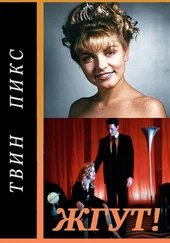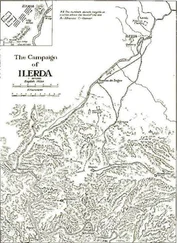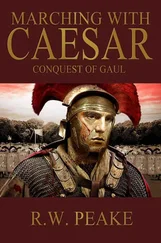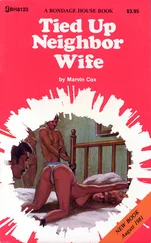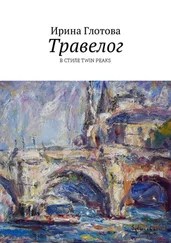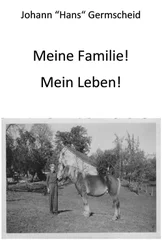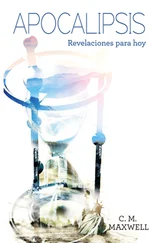Peake, Mervyn - 02 Gormenghast
Здесь есть возможность читать онлайн «Peake, Mervyn - 02 Gormenghast» весь текст электронной книги совершенно бесплатно (целиком полную версию без сокращений). В некоторых случаях можно слушать аудио, скачать через торрент в формате fb2 и присутствует краткое содержание. Жанр: Старинная литература, на русском языке. Описание произведения, (предисловие) а так же отзывы посетителей доступны на портале библиотеки ЛибКат.
- Название:02 Gormenghast
- Автор:
- Жанр:
- Год:неизвестен
- ISBN:нет данных
- Рейтинг книги:4 / 5. Голосов: 1
-
Избранное:Добавить в избранное
- Отзывы:
-
Ваша оценка:
- 80
- 1
- 2
- 3
- 4
- 5
02 Gormenghast: краткое содержание, описание и аннотация
Предлагаем к чтению аннотацию, описание, краткое содержание или предисловие (зависит от того, что написал сам автор книги «02 Gormenghast»). Если вы не нашли необходимую информацию о книге — напишите в комментариях, мы постараемся отыскать её.
02 Gormenghast — читать онлайн бесплатно полную книгу (весь текст) целиком
Ниже представлен текст книги, разбитый по страницам. Система сохранения места последней прочитанной страницы, позволяет с удобством читать онлайн бесплатно книгу «02 Gormenghast», без необходимости каждый раз заново искать на чём Вы остановились. Поставьте закладку, и сможете в любой момент перейти на страницу, на которой закончили чтение.
Интервал:
Закладка:
What was it that had fallen through the silence? Even the tree-cat would have hesitated to drop so far through the green gloom. But it was no cat, but something human that stood dappled with leaf-shaped shadows, a child, with its thick hair hacked off close to its head and the face freckled like a bird's egg. The body, slender, indeed thin, appeared, when the child began to move, to be without weight.
The features of her face were quite nondescript - in fact, empty. It was as though she wore a kind of mask, neither pleasant nor unpleasant - something that hid rather than revealed her mind. And yet, at the same time, although by feature there was nothing to remember, nothing distinctive, yet the whole head was so set upon the neck, the neck so perfectly adjusted upon the slender shoulders, and the movements of those three so expressive in their relationship that it seemed that there was not only nothing lacking, but that for the face to have had a life of its own would have ruined the detached and unearthly quality she possessed.
She stood there for a moment, entirely alone in the dreaming oakwoods and began, with strangely rapid movements of her fingers, to pluck the feathers from a missel-thrush which, during her long fall through the foliage, she had snatched from its branch and throttled in her small fierce hand.
FORTY-ONE
Surrounding the outer walls of Gormenghast castle the mud city of the Outer Dwellers lay sprawled in the sun, its thousands of hovels hummocking the earth like molehills. These Dwellers, or Bright Carvers as they were sometimes called, had rituals of their own as sacrosanct as those of the castle itself.
Bitter with poverty and prone to those diseases that thrive on squalor, they were yet a proud though bigoted people. Proud of their traditions, of their power of carving - proud of their very misery, it seemed. For one of their number to have left them and to have become wealthy and famous would have been to them a cause for shame and humiliation. But such a possibility was unthinkable. In their obscurity, their anonymity lay their pride. All else was something lower - saving only the family of the Groans to whom they owed allegiance and under whose patronage they were allowed their hold upon the Outer Walls. When the great sacks of crusts were lowered by ropes from the summit of those Walls, over a thousand at a time making their simultaneous descents, they were received (this time-honoured gesture on the part of the castle) with a kind of derision. It was they, the Bright Carvers, who were honouring the castle; it was they who condescended to unhook the ropes every morning of the year, so that the empty sacks might be hoisted up again. And with every mouthful of these dry crusts (which with the jarl-root of the neighbouring forest composed the beginning and end of their diet) they knew themselves to be conferring an honour upon the castle bakeries.
It was perhaps the pride of the subjugated - a compensatory thing - but it was very real to them. Nor was it built on nothing, for in their carvings alone they showed a genius for colour and for ornament that had no kind of counterpart in the life of the Castle.
Taciturn and bitter as they were in their ancient antipathies yet their hottest enmity was directed, not against any that lived within the outer walls, but against those of their own kind who in any way made light of their own customs. At the heart of their ragged and unconventional life there was an orthodoxy as hard as iron. Their conventions were ice-bound. To move among them for a day without forewarning of their innumerable conventions would be to invite disaster. Side by side with an outrageous lack of the normal physical decencies was an ingrained prudery, vicious and unswervingly cruel.
For a child to be illegitimate was for that child to be loathed, as though it were a diseased thing. Not only this. A bastard babe was feared. There was a strong belief that in some way a love-child was evil. The mother would invariably be ostracized but it was only the babe who was to be feared - it was, in fact, a witch in embryo.
But it was never killed. For to kill, it would be only to kill the body. Its ghost would haunt the killer.
In a lane of flies that wound beneath a curve of the Outer Walls, the dusk began to settle down like pollen. It thickened by degrees until the lane and the irregular roofs of reeds and mud were drowned in it.
Along the wall of the lane or alleyway a line of beggars squatted. It seemed that they were growing out of the dust they sat in. It covered their ankles and their haunches. It was like a dead, grey sea. It was as though the tide were in - a tide of soft dust. It was voluptuously fine and feathery.
And in this common dove-coloured dust, they sat, their backs to the clay walls of a sun-warmed hovel. They had these luxuries, the soft dust and the warm fly-filled air.
As they sat there silently, while the night descended, their eyes were fixed upon those few figures on the other side of the alley, who, their carving over for the day, were gathering up their chisels, rasps and mallets and returning with them to their various huts.
Until a year ago there had been no need for the Bright Carvers to return their sculpture to the safety of their homes. It had remained all night in the open. It was never touched. No, not the meanest vandal of them all would dare to touch or move by an inch the work of another.
But now there was a difference. The carvings were no longer safe. Something horrible had happened. And so the beggars by the wall continued to stare as the removal of the wood sculpture proceeded. It had been going on now for twelve months, evening after evening, but they were not yet used to it. They could not grasp it. All their lives they had known the moonlight on the deserted lanes, and, flanking these lanes the wooden carvings like sentinels at every door. But now, after dark, the heart had gone out of the streets - a vibrancy, a beauty had departed from the alleys.
And so they still watched, at dusk, with a kind of hapless wonder, the younger men as they struggled to return the often massive and weighty horses with their manes like clusters of frozen sea foam - or the dappled gods of Gormenghast forest with their heads so strangely tilted. They watched all this and knew that a blight had come upon the one activity for which the Dwellers lived.
They said nothing, these beggars, but as they sat in the soft dust, there was, at back of each one's mind, the image of a child. Of an illegitimate child, a pariah, a thing of not yet twelve years old, but a raven, a snake, witch, all the same, a menace to them all and to their carvings.
It had happened first about a year ago, that first midnight attack, secret, silent and of a maliciousness quite terrible.
A great piece of sculpture had been found at dawn, its face in the dust, its body scarred with long jagged knife wounds, and a number of small carvings had been stolen. Since that first evil and silent assault a score of works had been defaced and a hundred carvings stolen, carvings no bigger than a hand, but of a rare craftsmanship, rhythm and colour. There was no doubt as to who it was. It was the Thing. Shunned as a bastard ever since the day of her mother's suicide, this child had been a thorn in the flesh of the Dwellers. Running wild, like an animal, and as untameable; a thief as though by nature, she was, even before she ran away, a legend, a thing of evil.
She was always alone. It seemed unthinkable that she could be companioned. There was no soft spot in her self-sufficiency. She stole for her food, moving shadowlike in the night, her face utterly expressionless, her limbs as light and rapid as a switch of hazel. Or she would disappear completely for months on end, but then, suddenly return and darting from roof to roof, blister the evening air with sharp cries of derision.
Читать дальшеИнтервал:
Закладка:
Похожие книги на «02 Gormenghast»
Представляем Вашему вниманию похожие книги на «02 Gormenghast» списком для выбора. Мы отобрали схожую по названию и смыслу литературу в надежде предоставить читателям больше вариантов отыскать новые, интересные, ещё непрочитанные произведения.
Обсуждение, отзывы о книге «02 Gormenghast» и просто собственные мнения читателей. Оставьте ваши комментарии, напишите, что Вы думаете о произведении, его смысле или главных героях. Укажите что конкретно понравилось, а что нет, и почему Вы так считаете.

